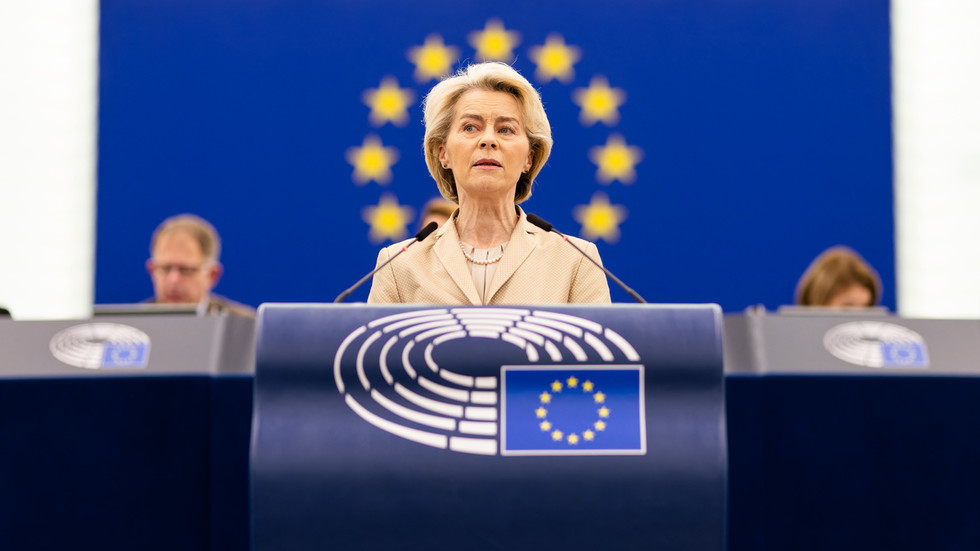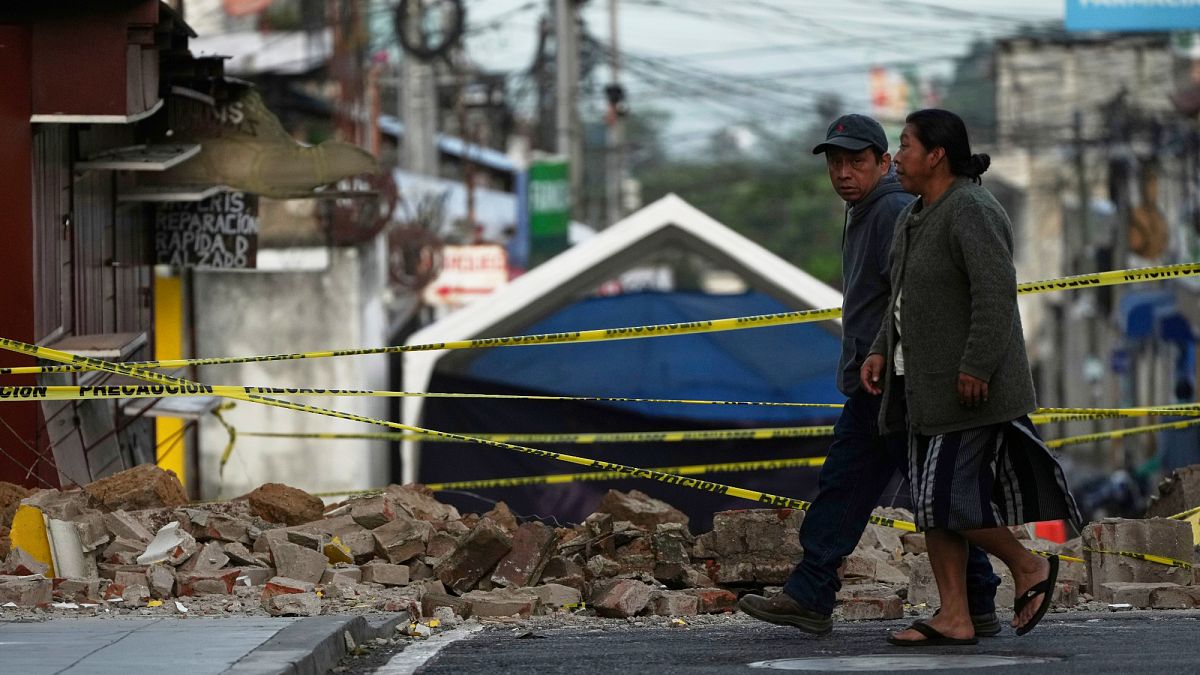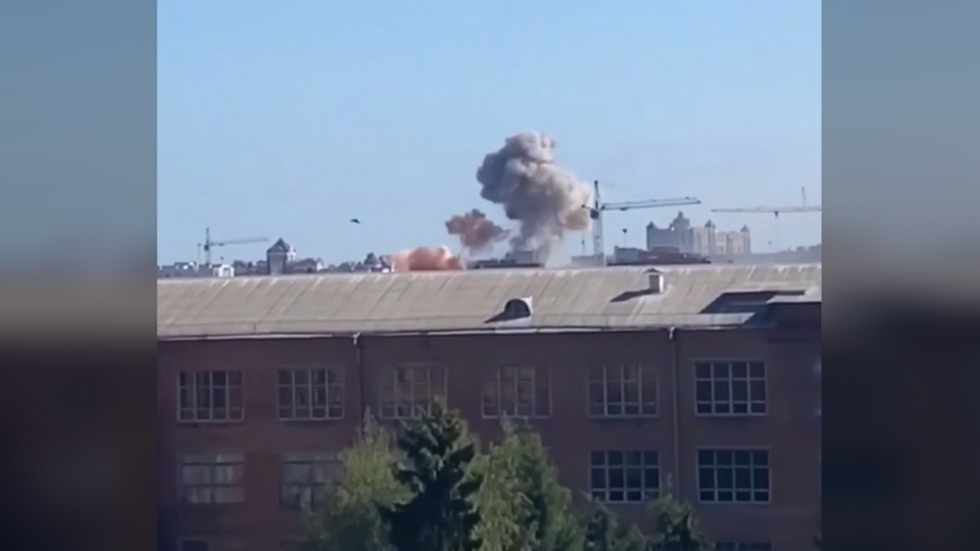![]()
Updated
President Trump said on social media on Monday that Israel and Iran had agreed to a cease-fire after more than a week of missile strikes on each other and a weekend attack on Iranian nuclear facilities by American bombers. There was no immediate confirmation of a deal by Israel or Iran.
Mr. Trump’s assertion came hours after Iran launched missiles at Al Udeid Air Base in Qatar, the largest American military installation in the Middle East, retaliating for U.S. strikes on Iranian nuclear sites though taking steps to limit the damage.
Vice President JD Vance said that the war appeared to be “effectively over” and that there was now an opportunity to “restart a real peace process.”
Mr. Trump’s language was characteristically less cautious.
“It has been fully agreed by and between Israel and Iran that there will be a Complete and Total CEASEFIRE,” the president wrote on social media. But he said it would not take place until the two countries had “wound down” military missions still in progress, which he said would unfold in phases over a day.
An Israeli military spokesman declined to comment, and there was no immediate comment from the Iranian government. But Israeli officials had suggested that the fighting might wind down soon. On Sunday night, the Israeli prime minister, Benjamin Netanyahu, said Israel was “very, very close” to achieving its aims in the war against Iran, although he did not provide a timetable for an end to the fighting.
Even as Iran prepared to target an American air base in Qatar earlier in the day, there were signs that the country was looking for an off-ramp from confrontation with the United States. Iranian officials and Mr. Trump said Iran had given advance notice that the missile strike was coming, minimizing potential casualties.
Mr. Trump said that 13 of the 14 Iranian missiles fired at Al Udeid had been downed, that no Americans there had been killed or wounded and that the damage was minimal. He also suggested that the fight, at least between the United States and Iran, might be over.
“They’ve gotten it all out of their ‘system,’ and there will, hopefully, be no further HATE,” he said, thanking Iran “for giving us early notice, which made it possible for no lives to be lost, and nobody to be injured.”
About 10,000 U.S. troops are stationed at Al Udeid, which serves as the regional headquarters for the U.S. Central Command. The Iranian strike on the base had initially stoked fears that the conflict with Iran might intensify, drawing the United States in deeper and expanding across the region. Qatar condemned the attack on its territory and said it reserved “the right to respond directly.”
Iranian officials had said their country needed to be seen striking back at the United States for its attack on critical nuclear installations, but cautiously. Iran used a similar approach in 2020, giving a heads-up before firing ballistic missiles at an American base in Iraq in reprisal for the assassination of its top general.
The Iranian assault came as Israel launched wide-ranging strikes on Tehran on Monday and promised more “in the coming days,” pressing on with its bombing campaign two days after the United States attacked three Iranian nuclear sites.
But the new Israeli barrage, which a military spokesman said targeted a paramilitary headquarters and access routes to the Fordo nuclear enrichment site that the U.S. military bombarded, came as Iran fired salvos of missiles that sent Israelis to huddle in shelters, and as Iran’s foreign minister, Abbas Araghchi, met with a key ally, President Vladimir V. Putin of Russia.
While the Russian leader called the U.S. strikes “absolutely unprovoked aggression,” he stopped short of offering concrete support for Iran.
Here’s what else to know:
Economic impact: Oil prices fell and stocks climbed after Iran fired missiles at Al Udeid. Before the attack, investors appeared cautiously optimistic about the potential economic fallout from the U.S. strikes over the weekend, and of any moves Iran might make that would disrupt oil shipments through the Strait of Hormuz, a critical transit point for global oil supplies.
Calls for peace: After European foreign ministers met to discuss Iran, the European Union’s chief diplomat, Kaja Kallas, said that “the concerns of retaliation and this war escalating are huge.” The International Atomic Energy Agency held an emergency meeting in Vienna, where the head of the agency, Rafael Grossi, warned that “violence and destruction could reach unimaginable levels” if Iran, Israel and the United States do not find a path to diplomacy.
U.S. strikes: Though Mr. Trump declared that Iran’s nuclear program had been “totally obliterated” by the U.S. bombings over the weekend, the actual state of the program was far murkier, with senior officials conceding they did not know the fate of Iran’s stockpile of near-bomb-grade uranium.
River Akira Davis contributed reporting.
Image
President Trump abruptly announced a cease-fire agreement between Israel and Iran after speaking to Prime Minister Benjamin Netanyahu of Israel and Iranian officials, with Qatar helping to mediate, a senior White House official said Monday.
The official, who was granted anonymity because they weren’t authorized to discuss the negotiations publicly, said Sheikh Tamim bin Hamad Al Thani, the emir of Qatar, played a role in the cease-fire discussions.
The announcement, made minutes after 6 p.m. Eastern time, caught even some of Mr. Trump’s own top administration officials by surprise. Israel has not yet confirmed the cease-fire, and within three hours of Mr. Trump’s announcement, there were fresh attacks from Israel against Iran, raising question about whether all parties had agreed to it.
Mr. Trump had help in pressing for a cease-fire from Vice President JD Vance, Secretary of State Marco Rubio and Steve Witkoff, Mr. Trump’s special envoy, who had been leading the efforts over the last two months for a deal to curtail Iran’s nuclear program, the official said.
The three men worked through “direct and indirect” channels to reach the Iranians, the official said. Israel agreed to the cease-fire provided they aren’t subject to further attacks from Iran, the official said.
The official credited the U.S. military strikes on three Iranian nuclear enrichment sites on Saturday with setting the conditions for a cease-fire discussion.
The official did not say what conditions Iran may have agreed to, including whether it answered questions about the whereabouts of its stockpile of enriched uranium.
Iran’s foreign minister, Abbas Araghchi, said in a post on social media that there was no cease-fire agreement but that if Israel stopped its attacks on Iran, Iran would also stop firing. “As of now, there is NO ‘agreement’ on any ceasefire or cessation of military operations,” the post said. “However, provided that the Israeli regime stops its illegal aggression against the Iranian people no later than 4 am Tehran time, we have no intention to continue our response afterwards.”
Image
Qatar intervened on behalf of the Trump administration and persuaded Iran to agree to a cease-fire with Israel, according to three diplomats briefed on the matter, who spoke on the condition of anonymity to discuss sensitive diplomacy.
There was no immediate confirmation from the Israeli or Iranian governments of a cease-fire, which President Trump said on social media Monday night was imminent, following more than a week of missile attacks between the two nations.
Two Iranian officials, speaking on condition of anonymity to discuss security matters, confirmed that Tehran had agreed to the American proposal. But an Israeli military spokesman declined to comment, and Israel was continuing to strike Iran with missiles in the early hours of Tuesday local time.
Earlier, the three diplomats said, Mr. Trump told Sheikh Tamim bin Hamad Al Thani, the emir of Qatar, that Israel had signed off on an American cease-fire proposal and that the president asked that Qatar help bring Iran on board.
Then the Qatari prime minister, Sheikh Mohammed bin Abdulrahman Al Thani, persuaded Iran to agree to the proposal in a call with the Iranian leadership, the diplomats said.
The exact details of what the diplomats said Israel and Iran agreed to remain unclear. Mr. Trump said on social media that the cease-fire would not take place until after the two countries “wound down” military missions in progress, a process he said would unfold in phases over a day.
On Monday evening, Iran attacked Al Udeid Air Base, a large U.S. military installation in Qatar, firing a fusillade of missiles at the site. The deal, if confirmed, would indicate that the wealthy Gulf emirate was simultaneously condemning Iran for its attack on Al Udeid and working to persuade the Islamic Republic to agree to a cease-fire.
Qatari officials have been key interlocutors in the indirect Gaza cease-fire talks between Israel and Hamas, and Qatar has long worked to present itself as capable of narrowing the gaps between warring parties.
Ronen Bergman contributed reporting.
While Israel has not yet confirmed President Trump’s cease-fire announcement, Israeli Air Force jets — possibly anticipating that such a declaration will be made soon — are striking dozens of targets in Tehran and other parts of the country, according to two Israeli defense officials.
Tehran is under intense Israeli strikes tonight, according to residents speaking live in a town hall on the application ClubHouse, who have described loud and continuous explosions. They say they can see and hear jets flying overhead. “The Mehrabad airport nearby is being struck back to back,” Mostafa Shams, a journalist in Tehran, told the forum. “I can see the jets and hear them.”
In a legally mandated memo sent to Congress on Monday, President Trump said he had authorized strikes on three of Iran’s most important nuclear sites last week “to advance vital United States national interests, and in collective self-defense of our ally, Israel, by eliminating Iran’s nuclear program.”
The strikes were carried out without congressional authorization and with little consultation with leaders on Capitol Hill, which angered many Democrats and some Republicans who believe Congress should play a more significant role in determining when American troops wade into war.
The memo asserted that the strikes were carried out under the authority granted to the president to uphold his responsibility to “to protect United States citizens both at home and abroad as well as in furtherance of United States national security and foreign policy interests.”
Image
Representative Thomas Massie, Republican of Kentucky, said that he would not see a need to bring his bipartisan resolution to reassert Congress’s war powers to the floor in the case of a lasting a cease-fire between Israel and Iran. “If the cease-fire holds and we’re not engaged in hostilities, then it’s a moot point,” he told reporters at the Capitol. “I wouldn’t need to bring it to the floor. I just spoke with the speaker about that.”
Image
The outlines of a plan to suspend Iran’s cooperation with the International Atomic Energy Agency, the U.N.’s nuclear watchdog, have been approved by the national security committee of Iran’s Parliament, state media said on Monday, citing the committee spokesman. The I.A.E.A. declared earlier this month that Iran was not complying with its nuclear nonproliferation obligations. Its chief, Rafael Grossi, urged a return to negotiations during an emergency meeting on Monday, saying that Iran needed to declare any transfer of nuclear materials out of safeguarded facilities and that a cessation of hostilities was required for Iran to let I.A.E.A. teams assess the sites bombed by the United States.
The State Department said on Monday evening that it had begun running evacuation flights from Israel two days earlier. Since Saturday, it said, seven such flights have left Israel with a total of about 250 U.S. citizens and permanent residents, and their accompanying immediate family members.So far, the State Department said, flights have arrived in Athens, Rome and Larnaca, on the southeast coast of Cyprus.
Only hours after Iran unsuccessfully fired missiles at the U.S. base in Qatar, President Trump is claiming in a Truth Social post that a cease-fire has been reached between Israel and Iran, and that the war will be over. We are still trying to verify this from both the Iranian and Israeli sides and have no further details yet. This all comes one day after Trump called for regime change and two days after the U.S. bombed Iranian nuclear sites. So this is all a fluid and unclear situation.
A Defense Department official said that American air defenses in Qatar intercepted the 13 Iranian missiles that President Trump said were knocked down in Monday’s attack. One other missile was allowed to land harmlessly. A U.S. official said that American troops in Iraq and Syria remain on alert for attacks by Iran-backed militias there.
President Trump’s first public comments since Iran’s missile attack on a U.S. base in Qatar indicated that he does not plan to retaliate. Instead, in a series of posts on Truth Social, the president framed the Iranian barrage as “a very weak response” and a gesture toward peace. In all-caps he posted “CONGRATULATIONS WORLD, IT’S TIME FOR PEACE!” He minimized the damage done and even thanked the Iranians for “giving us early notice, which made it possible for no lives to be lost, and nobody to be injured.”
“Perhaps Iran can now proceed to Peace and Harmony in the Region, and I will enthusiastically encourage Israel to do the same,” he added. Taken together, his posts suggest that Trump currently has no interest in a more protracted war to topple Iran’s leadership, despite some of his recent statements.
Image
The Israeli military said in a statement late on Monday that it had carried out a series of airstrikes on targets in western Iran, including underground military infrastructure used by the Islamic Revolutionary Guards Corps for storing missiles and missile launchers. Earlier on Monday, the military said, Israeli warplanes also struck and destroyed a missile launcher “intended for use against” Israeli aircraft.
Satellite imagery of Al Udeid Air Base taken Monday morning shows it was nearly empty of aircraft ahead of the Iranian missile attack. The images, captured by Planet Labs, showed dozens of aircraft at the base throughout early June, before Israel began its bombing campaign against Iran on June 13.
Source: Satellite imagery from Planet Labs
By The New York Times
Speaker Mike Johnson, a Republican, told reporters on Capitol Hill that he did not support efforts to require Congress to vote on authorizing the use of military force in Iran. “The commander in chief has Article II responsibilities. They’re very serious and important, especially in times like this. I think he used that authority judiciously,” he said. He dismissed efforts to limit that authority as “all politics.”
![]()
Megan Mineiro
The White House has still not briefed the “Gang of Eight” congressional leaders and intelligence committee leaders on the Iran strikes, said Hakeem Jeffries, the Democratic House leader, adding that he had repeatedly requested a briefing since Saturday. “There’s zero evidence that I’ve seen that the nuclear program was completely and totally obliterated, as Donald Trump has claimed,” he said.
“The use of military force which is offensive in nature must be approved by the House and the Senate,” Representative Hakeem Jeffries, the Democratic House leader, at a Capitol Hill news conference. “It’s not optional, Donald. It’s not,” he added. Jeffries has repeatedly asked what “the administration is hiding” about the strikes on Iran.
Image
![]()
Image
The American air base in Qatar targeted by Iranian missiles on Monday is the biggest U.S. base in the Middle East and serves as the regional headquarters for the U.S. Central Command. About 10,000 troops are stationed there.
The installation, Al Udeid Air Base, is heavily fortified by an array of air defenses. The U.S. military has been using Al Udeid since the days after the Sept. 11 attacks, when it positioned planes there to target the Taliban and Al Qaeda in Afghanistan. Two years later, Al Udeid became the main U.S. air operations hub in the region.
U.S. commanders used the base to coordinate a wide variety of missions during the wars in Iraq and Afghanistan, as well as strikes against the Islamic State in Syria. The Air Force has deployed a wide variety of aircraft there, from advanced fighters and long-range bombers to drones, transport planes and in-flight refueling tankers.
It also became the central evacuation point for tens of thousands of Afghans and Americans who fled Afghanistan in 2021 when the U.S. military withdrew.
The Combined Air Operations Center at the base helps project U.S. air power across a vast region encompassing 21 countries, from Northeast Africa to Central and South Asia, according to the Air Force.
Qatar, which saw the United States as its main protector in the Middle East, finished building the base in 1996, hoping to encourage the deployment of the U.S. military there. Over the years, Qatar has spent at least $8 billion to develop the base, which its military also uses alongside the British Royal Air Force, as part of its efforts to build up its partnership with the United States.
The modernization and expansion of the base has allowed a number of key U.S. military commands to operate out of it. Along with the U.S. Central Command, the base also hosts command facilities for American special forces.
The base’s location was carefully guarded until 2013, when Chuck Hagel, then the defense secretary, lifted the veil of secrecy.
President Trump visited Al Udeid last month while on a four-day tour of Gulf States. There, in a rally-like atmosphere, he spoke about Qatar’s purchases of American military supplies and told several of his favorite stories, including one about his trip to Iraq during his first term.
“I have nothing else to do,” Mr. Trump told U.S. troops from a stage at the base, “so let’s have a little fun.”
Image
Federal officials are increasingly concerned about the possibility of Iran or its supporters retaliating on American soil after the bombing of nuclear sites in Iran by U.S. forces.
In an internal email on Sunday, top officials at the F.B.I. cautioned that Iran and its proxies have “historically targeted U.S. interests in response to geopolitical events, and they are likely to increase their efforts in the near term.”
They urged field offices to monitor their collection platforms and stay in close contact with the Defense Department, including the National Guard, “who may be targeted for retaliation” while “specific attention should be paid to” U.S. military facilities connected to the strikes in Iran.
In New York City, Mayor Eric Adams said that more police officers would be on duty around religious, cultural and diplomatic sites “out of an abundance of caution,” given the situation in the Middle East.
Iran, which the United States has designated as a state sponsor of terrorism, has long backed a network of militias across the Middle East in an attempt to extend its influence across the region and undermine Israel. Those militias include Hamas, Hezbollah and the Houthis, who control parts of Yemen.
Separately, the Department of Homeland Security issued a security bulletin stating that the “ongoing Iran conflict” had elevated security concerns in the country and adding that cyberattacks by pro-Iranian hackers were likely.
“The likelihood of violent extremists in the homeland independently mobilizing to violence in response to the conflict would likely increase if Iranian leadership issued a religious ruling calling for retaliatory violence against targets in the homeland,” the bulletin said.
It noted that “cyberactors affiliated with the Iranian government may conduct attacks against U.S. networks.”
Such advisories are typical after American forces take significant military action overseas, reflecting a worry by national security officials that people living in the United States may be angry or compelled to lash out. The relationship between Iran and the United States is particularly fraught in recent years, particularly given that U.S. officials have accused Iran of trying to assassinate American officials, as well as Iranian dissidents in the country.
In a conference call on Sunday, D.H.S. and F.B.I. officials cautioned state and local law enforcement officials of the possibility of threats to U.S. communities. During the call, the nonprofit organization Secure Community Network, which provides safety consulting and training for Jewish facilities across North America, said that the level of threats was very high.
“Iran would not strike in the U.S. unless a red line was crossed,” said Michael Masters, the group’s chief executive, according to a summary of the call. “That red line was assessed to be direct military engagement, especially targeting Iran’s nuclear facilities. That red line has now been crossed.”
The bulletin by the Department of Homeland Security said that the Iran-Israel war “could also motivate violent extremists and hate crime perpetrators seeking to attack targets perceived to be Jewish, pro-Israel, or linked to the US government or military in the homeland.”
Former F.B.I. officials said the bureau was well versed in these situations and would ask informants to find out if there were any new threats while scrutinizing existing cases, including possible surveillance of those being investigated.
In its email on Sunday, the F.B.I. said to prioritize tips potentially associated with Iran or its proxies.
Carlos Fernandez, a former senior F.B.I. agent in charge of New York’s counterterrorism division, said the agents had to take seriously the possibility of sleeper cells in the United States, especially since Iran has been accused of plotting to kill President Trump before the election and a human-rights activist in Brooklyn.
Indeed, the bureau has also uncovered members of Hezbollah, who trained in Lebanon but then moved to the United States, where they were eventually arrested in Michigan and New York and charged with terrorism.
“It’s very real,” he said. “It’s a legitimate concern.”

.png) 2 weeks ago
4
2 weeks ago
4









